★★★½
“Hell hath no Furies…”
 Not to be mixed up with Furie, The Furies or even Furies – the last of which also showed up on Netflix recently. Confusion seems almost inevitable (and I’m not helping, by largely recycling the tagline for Furie). However, those three are all films – two Vietnamese, one Australian – while this is an eight episode TV series from France. It begins with Lyna Guerrab (El Arabi) living a fairly idyllic, and certainly well-heeled life, with no bigger issue than whether or not to marry her cop boyfriend Elie (Nadeau). Things get upended in no uncertain fashion, when her accountant father is assassinated. Turns out, he kept the books for certain criminal organizations, and someone wanted him very dead.
Not to be mixed up with Furie, The Furies or even Furies – the last of which also showed up on Netflix recently. Confusion seems almost inevitable (and I’m not helping, by largely recycling the tagline for Furie). However, those three are all films – two Vietnamese, one Australian – while this is an eight episode TV series from France. It begins with Lyna Guerrab (El Arabi) living a fairly idyllic, and certainly well-heeled life, with no bigger issue than whether or not to marry her cop boyfriend Elie (Nadeau). Things get upended in no uncertain fashion, when her accountant father is assassinated. Turns out, he kept the books for certain criminal organizations, and someone wanted him very dead.
Lyna vows to find whoever was responsible for her father’s demise, and make them responsible. That opens up a whole can of worms, as she has to venture into the domain of the Parisian criminal underworld, which is far more expansive and influential than expected. To a degree, it feels like the system shown in the John Wick franchise, with six crime families, working in different areas, e.g. prostitution, robbery, etc. who govern things and make sure nobody does anything that would upset their highly lucrative apple-cart. As their collective enforcer is a woman, Selma (Fois), known as the Fury, a hereditary position, passed down the matriarchal line, and she has the skills to keep everyone else in line.
Or does she? Because as Lyna enters the game, it becomes apparent that someone is out to disturb the balance of the system. Coming under the Fury’s patronage, as a possible successor, may not be enough to save her from the war which is becoming increasingly inevitable. As well as John Wick, there are quite a few elements here which feel inspired by Luc Besson in one way or another: the world-weary assassin who takes on a feisty young apprentice, for example, could be straight out of Leon. The fight scenes are well-crafted, slick and hard-hitting: I vaguely recall action director Jude Poyer as part of the Eastern Heroes crew in London, back in the nineties, so nice to see him kicking professional ass.
It does sometimes feel too over-stuffed, trying to juggle too many threads and characters. The script solution to any problem seems to be, throw in another subplot. The makers also deserve a demerit for ending on a horrendous cliffhanger. The streaming service have made no announcement regarding a second series: the show seems to have done reasonably well, but Netflix gonna Netflix. If that doesn’t happen, you should whack off a full star, since the way it ends is definitely not satisfying. But there does remain a good deal here to admire. I particularly liked the performance of Foïs, who brings a lot of nuance to a character that initially seems one-dimensional. The extended duration allows her to develop, though all told, it might have been better as a two-hour self-contained Besson flick.
Creators: Cedric Nicolas-Troyan, Jean-Yves Arnaud, Yoann Legave
Star: Lina El Arabi, Marina Foïs, Mathieu Kassovitz, Jeremy Nadeau





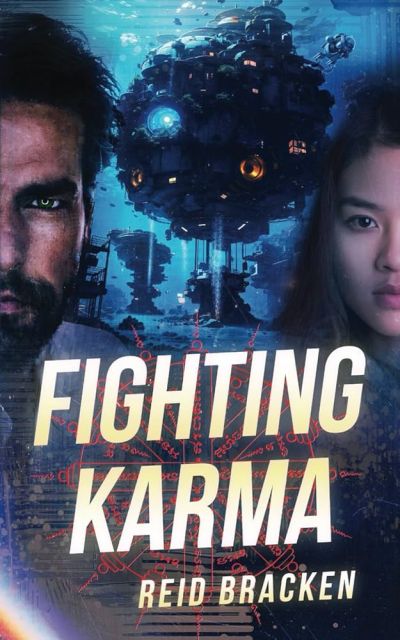 This is a sequel to
This is a sequel to 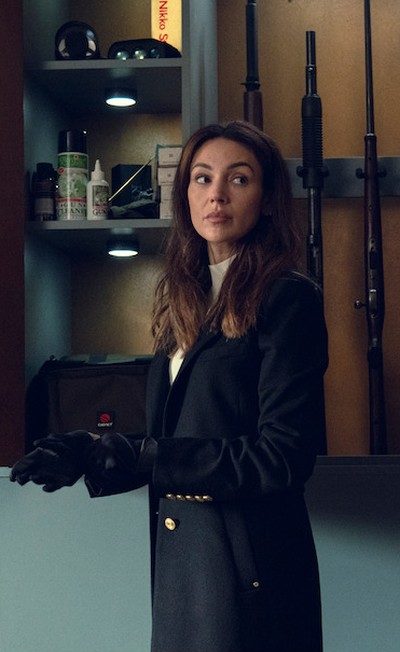 Maya Stern (Keegan) is having a rough patch. A former helicopter pilot in the military, she was sent home and discharged under murky circumstances. While she was away, her sister was killed in what looks like a botched burglary, and not long after her return, husband Joe is also shot and killed in front of Maya, when they are walking in the park. But is everything what it seems? Because when checking the nanny-cam monitoring her young daughter, Maya sees a shocking site: her supposedly dead husband visiting the house. This kicks Maya into an unrelenting search for the truth, which will send her down a rabbit-hole and uncover a lot of sordid secrets, dating back decades.
Maya Stern (Keegan) is having a rough patch. A former helicopter pilot in the military, she was sent home and discharged under murky circumstances. While she was away, her sister was killed in what looks like a botched burglary, and not long after her return, husband Joe is also shot and killed in front of Maya, when they are walking in the park. But is everything what it seems? Because when checking the nanny-cam monitoring her young daughter, Maya sees a shocking site: her supposedly dead husband visiting the house. This kicks Maya into an unrelenting search for the truth, which will send her down a rabbit-hole and uncover a lot of sordid secrets, dating back decades.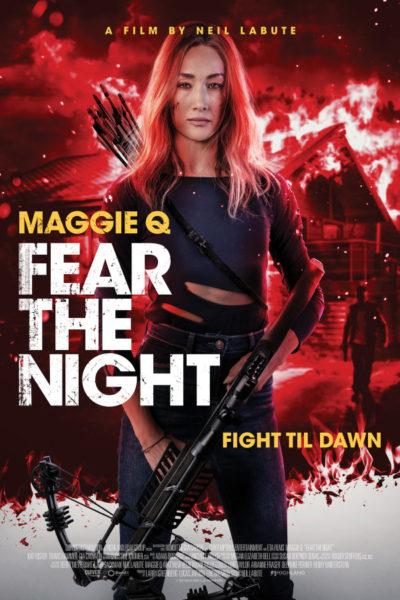 Director LaBute is best known around these parts for his ill-conceived remake of classic horror The Wicker Man, which is generally regarded as spectacularly bad, and is probably best-known for spawning memes involving Nicolas Cage and bees. So expectations going into this were… not high, shall we say. On that basis, the three-star rating is something of a pleasant surprise, though most of the credit for this should got to its star, rather than the director. Tess (Q) is a veteran of the war in Iraq, who is struggling to reconnect to her two sisters. Rose is getting married, and is nice enough that Tess is willing to attend her bachelorette party at the family cabin, deep in the country. But Beth (Foster) is a straight-up bitch.
Director LaBute is best known around these parts for his ill-conceived remake of classic horror The Wicker Man, which is generally regarded as spectacularly bad, and is probably best-known for spawning memes involving Nicolas Cage and bees. So expectations going into this were… not high, shall we say. On that basis, the three-star rating is something of a pleasant surprise, though most of the credit for this should got to its star, rather than the director. Tess (Q) is a veteran of the war in Iraq, who is struggling to reconnect to her two sisters. Rose is getting married, and is nice enough that Tess is willing to attend her bachelorette party at the family cabin, deep in the country. But Beth (Foster) is a straight-up bitch.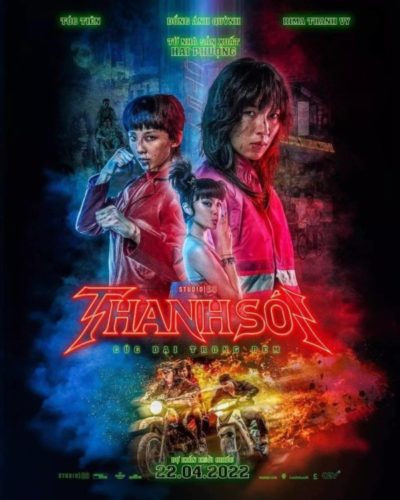 This is a prequel of sorts to
This is a prequel of sorts to 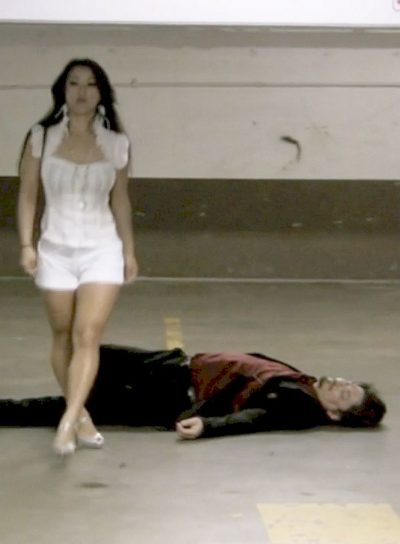 Tubi TV has become a goldmine of obscure, weird and,
Tubi TV has become a goldmine of obscure, weird and,  This Taiwanese kung-fu potboiler just about manages to sustain interest for an hour, before losing the plot (literally, and such as it was to begin with) down the stretch. It begins with ten martial arts masters stealing an omnibus edition of fighting manuals from the local Shaolin temple. Trying to get entry, and failing, because they won’t admit women, is Shi Fu Chun (Kwan). With the help of former head priest Lin Chiu (Chan), who still lives nearby, she is taught a slew of skills, and ends up assigned the task of recovering the purloined books, and restoring the temple’s honour. Oh, except the “positive kung-fu” learned is causing Shi Fu to transition into a man. So she/he (inexplicably, the 1977 film does not provide us with preferred pronouns…) needs to find and learn some “negative kung-fu” stat, to counter the process.
This Taiwanese kung-fu potboiler just about manages to sustain interest for an hour, before losing the plot (literally, and such as it was to begin with) down the stretch. It begins with ten martial arts masters stealing an omnibus edition of fighting manuals from the local Shaolin temple. Trying to get entry, and failing, because they won’t admit women, is Shi Fu Chun (Kwan). With the help of former head priest Lin Chiu (Chan), who still lives nearby, she is taught a slew of skills, and ends up assigned the task of recovering the purloined books, and restoring the temple’s honour. Oh, except the “positive kung-fu” learned is causing Shi Fu to transition into a man. So she/he (inexplicably, the 1977 film does not provide us with preferred pronouns…) needs to find and learn some “negative kung-fu” stat, to counter the process. 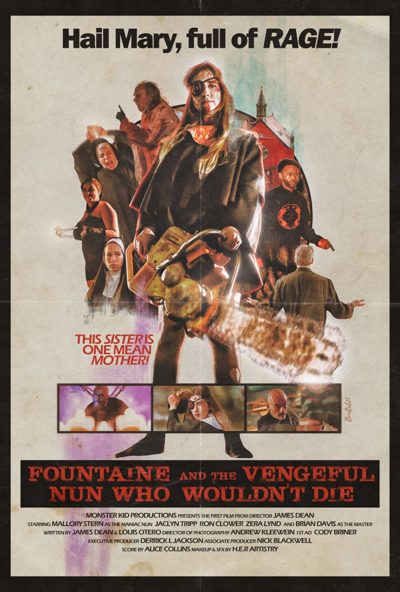 You will probably understand why the title more or less rocketed to the top of my watch-list, especially when accompanied by the poster (right). Naturally, it was almost inevitable that it could not possibly live up to either: the question was mostly, how far short it would fall. The answer is, “a fair bit, yet not irredeemably so,” even if the first half if considerably duller than I wanted. Indeed, it’s also rather confusing, in terms of what’s going on. As well as I can piece things together, Mary (Stern) is a nun who gets sent to an asylum after losing her sister, though it turns out to be less a mental-care facility than you’d expect.
You will probably understand why the title more or less rocketed to the top of my watch-list, especially when accompanied by the poster (right). Naturally, it was almost inevitable that it could not possibly live up to either: the question was mostly, how far short it would fall. The answer is, “a fair bit, yet not irredeemably so,” even if the first half if considerably duller than I wanted. Indeed, it’s also rather confusing, in terms of what’s going on. As well as I can piece things together, Mary (Stern) is a nun who gets sent to an asylum after losing her sister, though it turns out to be less a mental-care facility than you’d expect. This documentary is about the field of women in aviation, combining archive footage with interviews, covering the range from those who aspire to fly (giving their Lego aircraft lady pilots!) to those who have been into space, fought combat missions in the Middle East or dodged death in aerobatic displays. There’s not any particular structure to proceedings, choosing instead to bounce around between its topics and subjects. This helps keep things fresh, yet at the cost of any narrative beyond, I guess, “Women can do anything men can”? Which, to be fair, deserves saying in the aviation field particularly: how much strength is needed to handle a joystick?
This documentary is about the field of women in aviation, combining archive footage with interviews, covering the range from those who aspire to fly (giving their Lego aircraft lady pilots!) to those who have been into space, fought combat missions in the Middle East or dodged death in aerobatic displays. There’s not any particular structure to proceedings, choosing instead to bounce around between its topics and subjects. This helps keep things fresh, yet at the cost of any narrative beyond, I guess, “Women can do anything men can”? Which, to be fair, deserves saying in the aviation field particularly: how much strength is needed to handle a joystick?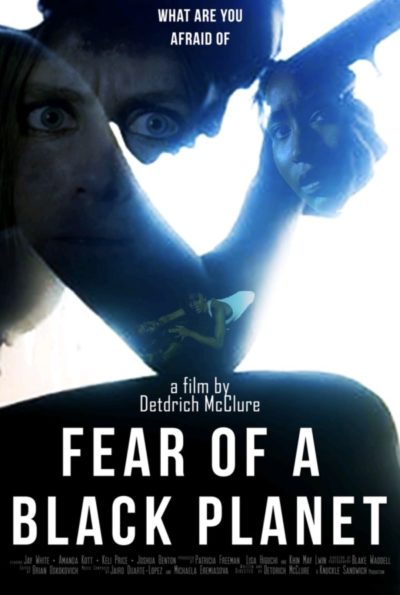 It’s interesting to look at the film’s IMDb page, and contrast the reviews, where there’s nothing less than an 8/10, with the rating, where 73% of votes are a 1/10. One “review” was actually a rant about other reviews which appear to have been removed? Something odd there. There’s no doubt, the film is not so much tackling a contentious topic, as driving head-first into it at 80 mph. Even the title (obviously inspired by the Public Enemy LP of the same name) is an incendiary one, guaranteed to raise the hackles of many – and, to be honest, not without reason, because of the assumptions it makes. It’s a shame, since the film is at least slightly more nuanced than the title makes it seem.
It’s interesting to look at the film’s IMDb page, and contrast the reviews, where there’s nothing less than an 8/10, with the rating, where 73% of votes are a 1/10. One “review” was actually a rant about other reviews which appear to have been removed? Something odd there. There’s no doubt, the film is not so much tackling a contentious topic, as driving head-first into it at 80 mph. Even the title (obviously inspired by the Public Enemy LP of the same name) is an incendiary one, guaranteed to raise the hackles of many – and, to be honest, not without reason, because of the assumptions it makes. It’s a shame, since the film is at least slightly more nuanced than the title makes it seem.